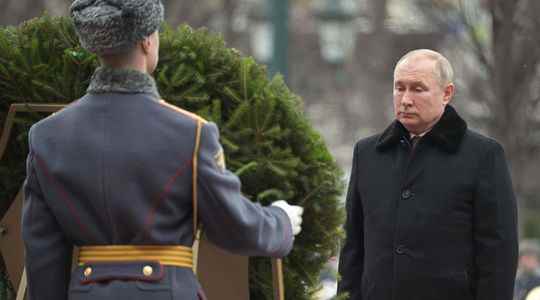Niet, Mr. Poutine, the blows of force do not shape the future.
Observing the images of these Russian tanks crossing the Ukrainian border on February 24, how not to remember that night from August 20 to 21, 1968, when the armored troops of the Warsaw Pact stormed into Czechoslovakia at top speed to put an end to in the Prague Spring, claiming a hundred victims in the first days of the intervention?
Mr. Putin, you were only 15 at the time, but have you forgotten that this “normalization” wanted by the Kremlin marked the beginning of the end of the Soviet Union? As Mikhail Gorbachev would later acknowledge, with the repression of the Prague Spring, the Soviet Union not only strangled the hopes of Czechoslovaks that day, but strangled itself. Are you not repeating the same fault, half a century later, by repressing the Ukrainian people in the name of an ideology as absurd as it is dictatorial?
Niet, Mr. Putin, Europe is not decadent.
In February 2021, your Foreign Minister, Mr. Lavrov, humiliated his European counterpart, Josep Borrell, during his visit to Moscow. A year later, this same Borrell announced the sending of 450 million euros of military equipment to the Ukrainians. This is Europe, Mr. Putin. A project that is built in crises, a continent that, admittedly, is slow to put itself in working order, but is now becoming aware of its power. And that your wild ambitions have awakened.
Niet, Mr. Putin, Ukraine is not Russia.
Since 2014, you have done everything to bring Ukraine back into Russian hands. Refuting its existence as a nation. Denying the history of a people who, no offense to you, were closer to Poland and Lithuania than to “mother Russia” until the 17th century. And brushing aside the will of men and women who, more than thirty years ago, chose independence.
The number of Ukrainian civilians who, since February 24, have taken up arms to defend their land should however make you think: Ukraine has forged a new national identity in “anti-Russianism”, Mr Putin, and you are responsible for it.
Niet, Mr. Poutine, the Russian force does not make the law.
Your tank columns may approach Kiev, but you will find it difficult to break its spirit of resistance. Are you unaware that 22% of Ukrainians, according to a December poll, are ready to join a civil resistance movement in the event of a total invasion? The occupation of Ukraine can turn into a “quagmire” and this worries you, you who bet on speed. From Vietnam to Afghanistan, asymmetric wars are rarely won by large nations. What will you do with Kiev, Mr. Putin? The Grozny of the 21st century?
Niet, Mr. Putin, you don’t scare us.
What do you hope for by placing your deterrent forces on high alert and raising the specter of nuclear war? Show your – undeniable – talents in terms of psychological pressure? Unless this decision reveals an unusual feverishness in you? Three times, during the month of February, you referred to your nuclear arsenal. Don’t play this, Mr. Putin. Like nuclear deterrence, rhetoric is a double-edged sword. And she agrees badly of one-upmanship.
Niet, Mr. Putin, Russia is not your toy.
Even if, since 1999, you have been the only master of the Kremlin and you do not hesitate to play with the Constitution, even to poison and imprison your opponents to ensure your longevity in power, you seem to forget that your popularity remains fragile and your increasingly visible loneliness. You are alone in front of your people, muzzled and tired of your nationalist rantings, but also in front of your elites, brought to heel, but who accept your thirst for power and wealth more and more badly.
Yes, Mr. former KGB officer, at almost 70 years old, you are the man of the past.
You, the vengeful president, who never recovered from the fall of the USSR – in your eyes “the greatest geopolitical catastrophe of the 20th century”. You, the admirer of Stalin, you should re-read Milan Kundera (1) to understand how Ukrainians feel today. “Nothing could be more foreign to Central Europe and its passion for diversity than Russia, uniform, standardizing, centralizing, which transformed with formidable determination all the nations of its empire (Ukrainians, Belarusians, Armenians, Latvians, Lithuanians ) into one Russian people.”
Today, in Kiev or Kharkiv, the people tell you Niet in Russian, Or in Ukrainian.
(1) Kundera Milan, “A Kidnapped West”, Le Débat, 1985/5 (n° 37)
